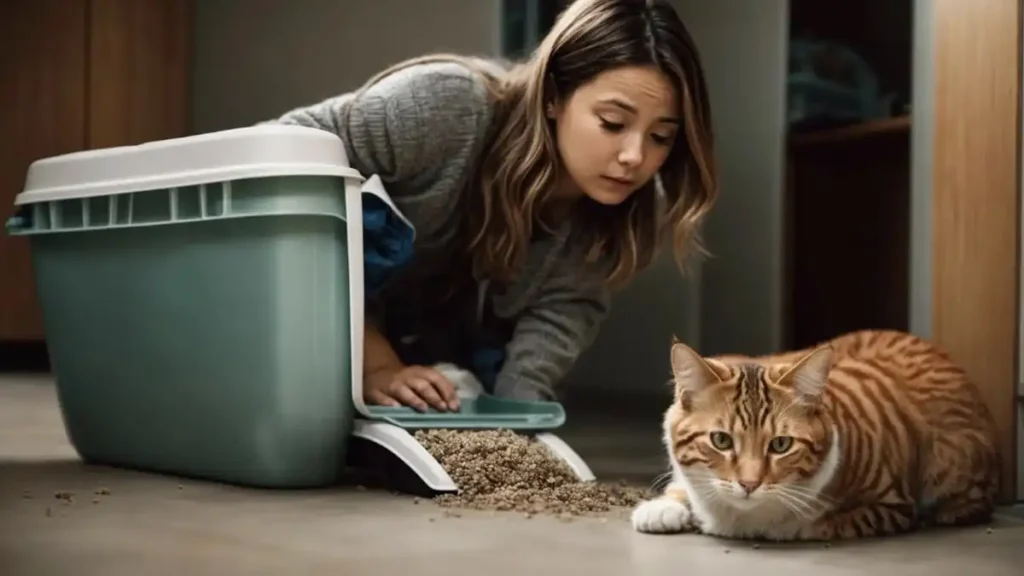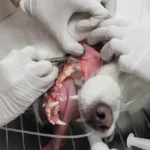
Cats are famously fastidious about their cleanliness and litter box habits. However, urinary tract issues can disrupt your cat’s usual bathroom routine leading to discomfort and potentially serious medical complications. As a cat owner, it’s important to be aware of the telltale signs that could indicate a problem lurking in your cat’s urinary system.
What are Urinary Tract Issues (UTIs) in Cats?
Urinary tract issues refer to a range of problems affecting the kidneys, ureters (tubes that transport urine), bladder, and urethra (tube carrying urine out of the body). Common types of UTI include:
- Cystitis: Inflammation of the bladder, often caused by bacterial infections or bladder stones.
- Urinary Blockages: Obstructions, often from bladder stones or urethral plugs (made up of mucus and crystals) that prevent your cat from urinating. This is a medical emergency.
- Feline Lower Urinary Tract Disease (FLUTD): A broader term for conditions affecting the lower urinary tract, of which cystitis and blockages are common types.
- Kidney Disease: While less common in young cats, chronic kidney disease is a concern, especially in older felines, and can affect urinary function.
Signs to Watch For
Cats are masters at hiding signs of pain or discomfort, so it’s up to you to be vigilant about changes in their behavior. Here are some key signs that your cat might be experiencing urinary trouble:
- Changes in Litter Box Behavior:
- Urinating outside of the litter box (inappropriate elimination)
- Straining or crying out in pain while using the litter box
- Increased frequency of litter box visits
- Only producing small amounts of urine each time
- Changes in Urine:
- Bloody or cloudy urine
- Strong-smelling urine
- Other Signs
- Excessive licking of the genital area
- Lethargy or changes in energy levels
- Decreased appetite
- Vomiting
Why are Urinary Issues a Serious Concern?
While uncomfortable, urinary problems can quickly escalate to dangerous situations if left untreated. Bacterial infections can spread from the bladder to the kidneys, causing severe health complications. Of even greater concern, urinary blockages are life-threatening medical emergencies, as they can lead to kidney failure if urine isn’t able to exit the body.
What to Do if You Suspect a Urinary Issue
If you notice any of the signs above, it’s crucial to contact Slaton Veterinary Hospital immediately. Don’t delay, even if it seems like a minor change in behavior. Early intervention is key to successful treatment and can prevent more severe problems.
Diagnosis and Treatment
Your veterinarian will start by taking a thorough history and performing a physical exam. To pinpoint the cause of the urinary problems, they may recommend the following:
- Urinalysis: Provides information about the composition of the urine, detecting signs of infection, blood, crystals, or blockages.
- X-rays or Ultrasound: To visualize the bladder and kidneys, and identify stones or other abnormalities.
- Blood Tests: To assess kidney function and overall health.
Treatment depends on the underlying cause of the urinary issue. Options may include:
- Antibiotics: To combat bacterial infections.
- Pain Relief: To make your cat more comfortable during treatment and recovery.
- Dietary Changes: Special diets are frequently required to manage crystals and prevent their formation, or support kidney function.
- Surgery: Necessary in some cases of blockages or chronic conditions unresponsive to other treatments.
Prevention Tips
While not every urinary tract issue is preventable, you can take steps to reduce your cat’s risk:
- Provide Plenty of Fresh Water: Staying hydrated encourages urination and helps flush out the urinary tract.
- Encourage Frequent Urination: Provide multiple, clean litter boxes in quiet, accessible locations.
- Manage Stress: Stress plays a role in some urinary issues; minimize environmental stressors for your cat.
- Feed a High-Quality Diet: Discuss with your vet whether a urinary support diet is suitable for your cat.
- Regular Veterinary Checkups: Catch potential problems early and monitor your cat’s overall health, particularly senior cats.
Your Cat’s Best Advocate
By being observant of your cat’s bathroom habits and overall behavior, you become their best advocate. Don’t hesitate to seek veterinary care at any sign of a urinary problem – early diagnosis and treatment can make a world of difference for your feline friend’s well-being.
Don’t wait for discomfort to escalate; contact Slaton Veterinary Hospital at the first hint of concern. Your proactive steps, including maintaining a clean litter box and monitoring behavior, can significantly impact your feline friend’s well-being.




